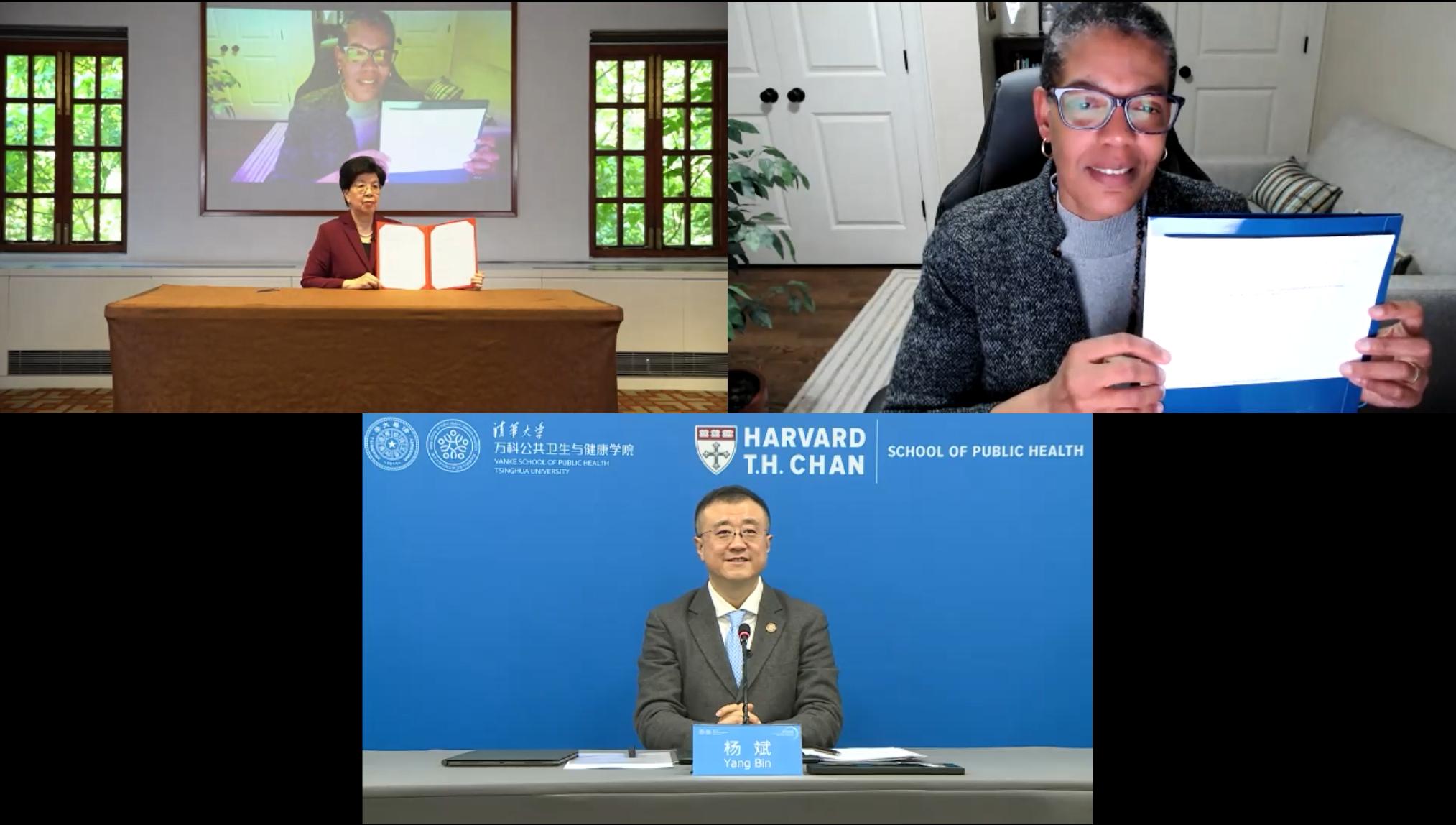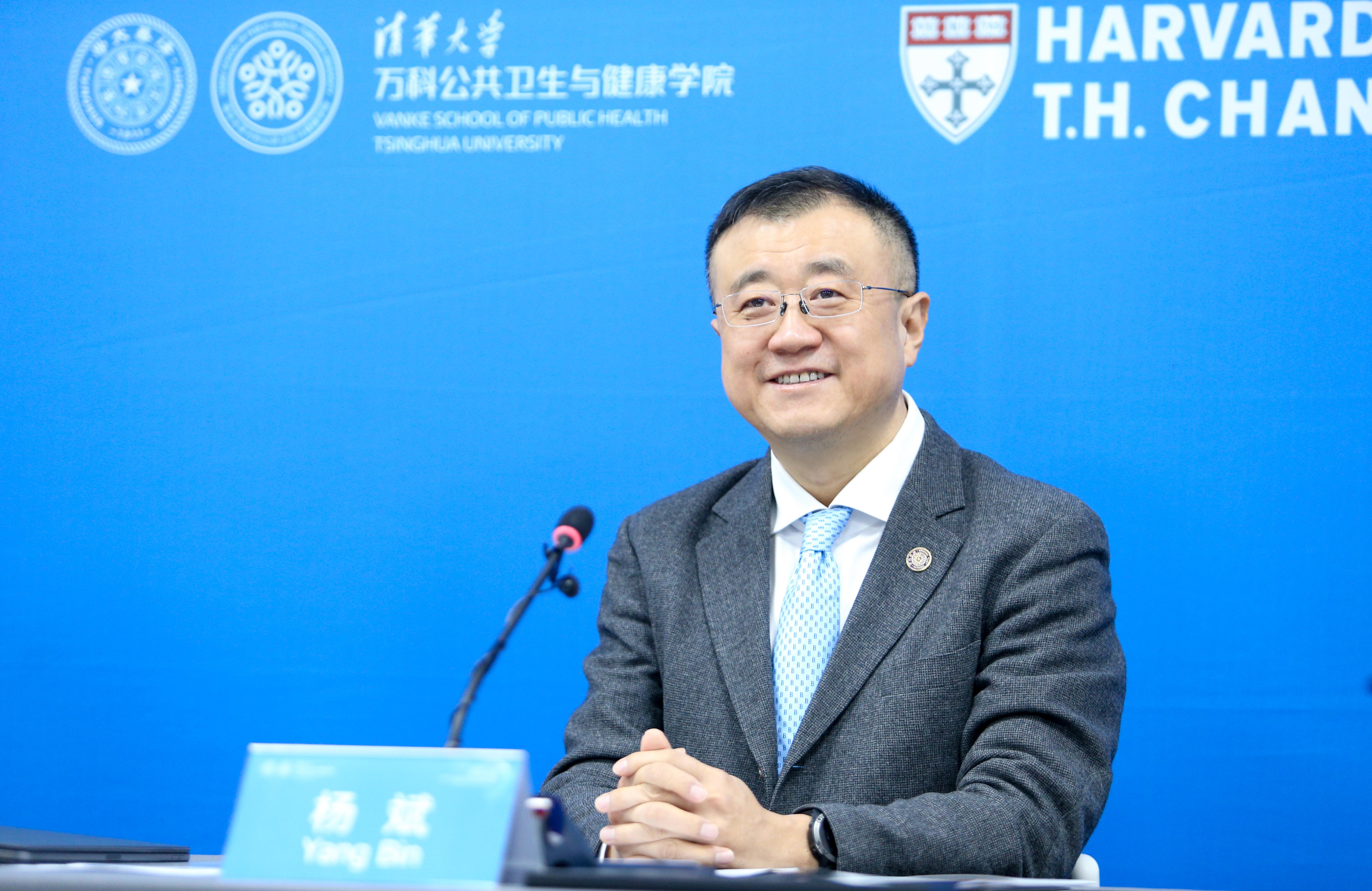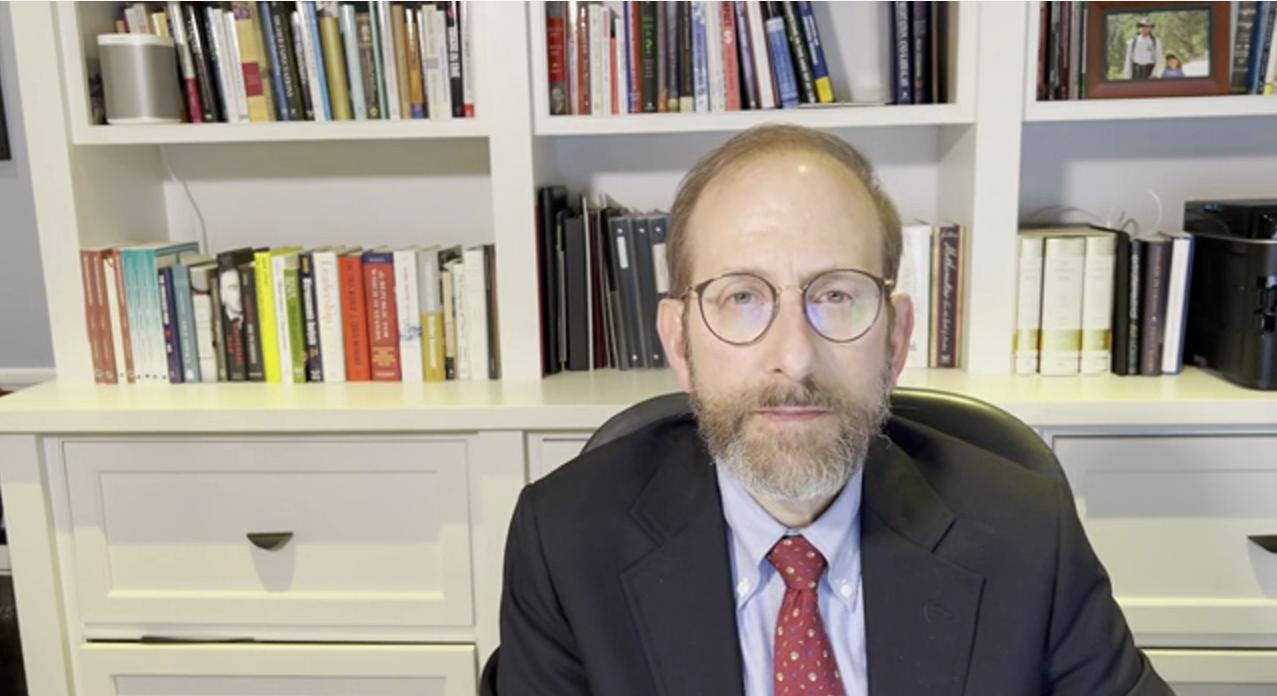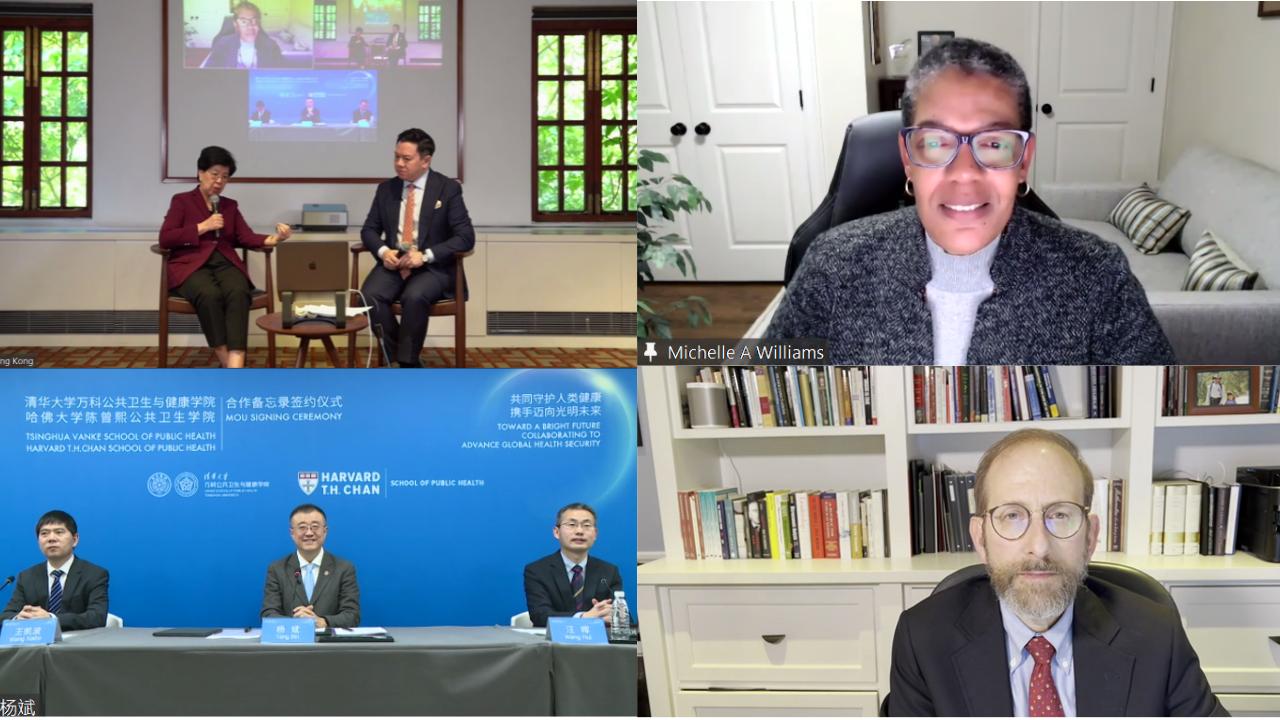The Tsinghua Vanke School of Public Health and the Harvard T.H. Chan School of Public Health held a virtual Memorandum of Understanding (MoU) signing ceremony on December 2.
Dean Margaret Chan of the Tsinghua Vanke School of Public Health and Dean Michelle A. Williams of the Harvard T.H. Chan School of Public Health entered the agreement, which outlines areas for collaboration to advance global health security.

The new collaboration between Tsinghua and Harvard in the field of public health is a timely development for the two universities to shoulder even greater responsibilities and to jointly respond to global challenges. The MoU allows the two schools to cooperate on student exchanges, short-term courses, joint research and publications, and sabbatical visits.

Professor Yang Bin, Vice President and Provost of Tsinghua University, and Professor Alan Garber, Provost of Harvard University, witnessed the signing of the MoU and delivered remarks. The signing ceremony was hosted by James Chau, Special Advisor to Dean Margaret Chan.
Yang Bin stated that health is the foundation of social civilization and progress, and a priority goal of public policies of all countries, and that promoting global health is important for the implementation of the UN’s Sustainable Development Goals.
Yang Bin said that Tsinghua University has always been committed to developing innovative solutions to help solve pressing problems in China and the world, through education and research. The founding of the Vanke School of Public Health and the initiation of the World Health Forum are among some of the latest efforts made by Tsinghua to coalesce global wisdom, to create opportunities for dialogues and to promote global cooperation, he added.
Yang Bin encouraged faculty members and students from both schools and universities to collaborate fully to share new knowledge, to tackle common public health challenges, and to jointly contribute to the development of human health.

Harvard’s Provost Alan Garber mentioned in his address that the new agreement between the two schools is timely. He said that global health challenges require global solutions and that nations need to work together to overcome the COVID-19 pandemic, climate change and other challenges for human health.
The new collaboration will further the goal of both universities to train the leaders of the future, guide the global health agenda now and for generations to come, and advance the shared mission of improving public health around the world, he added.
A dynamic dialogue session, Fireside Conversation, was held before the signing ceremony.
Dean Margaret Chan and Dean Michelle Williams discussed the fight against the COVID-19 pandemic, HIV/AIDS, and other historic health crisis, as they shared their reflections on how talent and technologies can build solutions for health, for social justice, for gender equity and for implementing the Sustainable Development Goals.

They also exchanged insights on where Harvard and Tsinghua lead and can contribute meaningfully. They highlighted that to better respond to future challenges, the world needed cross-sector and inter-disciplinary cooperation, technical innovation as well as inclusion.
Tsinghua and Harvard have extensive cooperation in business administration, public administration, bio-medicine, environment, energy and other fields.
Wang Kaibo, Vice Dean of the Tsinghua Vanke School of Public Health, and Wang Hui, Associate Dean of the Office of International Affairs of Tsinghua University, among others, were present at the event.
---------------------------------------------------
Source: Tsinghua Vanke School of Public Health
Editors: Guo Lili, Sangeet Sangroula